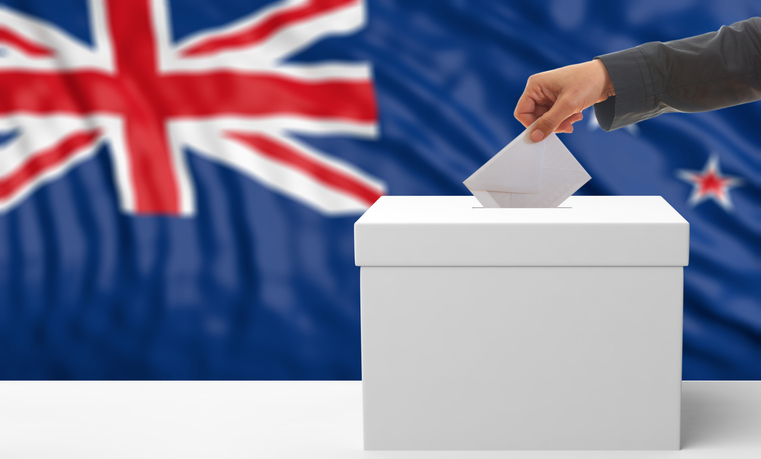Do we need longer parliamentary terms?
The topic of longer terms enabling governments to undertake meaningful policy programs is a favourite among our political parties.
This perennial question has sparked lively debates among both political analysts and the general public. Advocates for extending parliamentary terms often argue that frequent elections can encourage short-term thinking among lawmakers, causing them to prioritise immediate political gain over long-term national interest.
Shorter terms may also lead to policy instability, as governments might feel constrained to focus on popular, quick-win initiatives at the expense of comprehensive reforms that require more time to bear fruit. On the other hand, concerns arise that longer terms could reduce the accountability of elected representatives, limiting the electorate’s ability to correct course in response to unpopular or ineffective governance.
There is likely to be some justification for this concern, as the general public’s discomfort with longer parliamentary terms is founded on decades of harsh experience based on the observation that individual governments can drive through unpopular policy programs within the limitations of a three-year term with regularity already.
The nature of democracy is inherently a balancing act between stability and responsiveness. While governments require enough time to craft, consult on, and implement significant reforms—especially in areas like education, healthcare, infrastructure, and climate policy—the public’s trust is fundamentally rooted in the ability to hold leaders accountable within a reasonable timeframe.
Thus, the duration of parliamentary terms becomes not merely a technical consideration, but a question that touches the core of how a society wishes to be governed.
International comparisons further enrich the debate. In countries such as the United Kingdom and New Zealand, discussions around extending terms from three to four or even five years have often cited the benefits of continuity and policy follow-through.
Conversely, nations with longer terms sometimes grapple with voter frustration if governments become complacent or drift from their mandates. Ultimately, the challenge is to strike a balance that fosters both governmental effectiveness and ongoing democratic engagement.
However, there are good arguments for a longer term particularly in building and maintaining experienced parliamentary representation and in preparing and progressing policy initiatives.
- Should the electoral term be lengthened?
- Are there ways of balancing placing greater trust in politicians with mechanisms for intervening where the majority of the electorate is unhappy with the policy directions of the incumbent government?
- Could a split term be introduced to balance the risk of lengthy periods between elections? See Footnotes (1)
- Could compulsory referenda and/or mandatory polling/policy mandates be required for substantive changes? Footnotes (2)
- Could there be a recall mechanism where individual elected members could be subject to recall by-elections? Footnotes (3)
- Could funding tools be introduced that reflect public satisfaction with government? Footnotes (4)
The best and most enduring policies tend to have majority community support. A policy, law or regulation that is deeply unpopular is very likely to be at a minimum, ineffective either through lack of community support through to causing damage to society or the economy.
Good policies and sound laws should be inherently easy to sell to the electorate. If they can’t be sold, then either communication needed to improve, or the legislation or policy needs to be sent back to the drawing board.
Feel free to Vote below and /or go to the next question – Do we need to change the way politics is funded?
-
Yes+ 29%, 5 votes5 votes 29%5 votes - 29% of all votes
-
No+ 29%, 5 votes5 votes 29%5 votes - 29% of all votes
-
No- 24%, 4 votes4 votes 24%4 votes - 24% of all votes
-
Neutral 12%, 2 votes2 votes 12%2 votes - 12% of all votes
-
Yes- 6%, 1 vote1 vote 6%1 vote - 6% of all votes
Each question is seeking a response on a range through “yes+” “yes-“ “neutral” “no-“ “no+” where the plus indicates strong support minus indicates mild support.
4 Comments
Submit a Comment
Footnotes
1. It would be quite feasible to have a four or five year cycle election cycle that is comprised of two elections cycles each being for half of the electorate seats. The United States Congress and Senate mid-term elections follow this structure. This effectively gives the electorate an opportunity to review parliament’s performance every 30 months but leaves parliament to operate on a longer-term basis. The risk to the governing party is that it loses it majority at the term midpoint if it becomes unpopular. It also has the particular benefit of always having a core of experienced politicians retained in Parliament effectively Parliament becomes a more continuous operation rather than an entity that reforms every three years. It also makes the dominant party more sensitive to the electorate’s mood.
2. Longer terms could be managed by requiring major policy initiatives to be subject of either mandatory referenda or by a polling process. Politics makes little use of the potential for digital consultation and online referenda. These could be simply set up using online survey services such as “SurveyMonkey”. It could be that parliament is required to put any contentious policy or legislation to an online poll, if a preset percentage of the registered voter base request.
3. If a longer parliamentary term is introduced this could be counterbalanced with a set (substantial) percentage of the registered voters within any electorate being able to require a “recall” of their elected representative to be subject to a byelection.
4. Political parties could be funded through taxpayer funded annual grants that are apportioned among the registered parties by registered voters on an annual basis. This is a concept that is independent of any change to the Parliamentary term and is discussed in another section of this site. It is noted here as this funding strategy provides voters with a simple but effective feedback process that would be useful in the context of a longer parliamentary term. (Note: Broadcast funds in NZ)
Join Us in the Journey

Get Involved
- Vote & / or comment) on key questions.
- Subscribe to the mailing list.
- Read the blog posts & comment
- Improve local body systems
- Sign the petition. We are reviewing the best options to make this online. TBA

I think “rotating” 3 year term elections through the country would be a better solution. Like this:
a) Divide the country into 72 electorates
b) Arrange for 2 geographically disparate electorates to vote on a rotating basis every month of the year
c) In its designated month, every electorate would elect one individual by popular vote to serve that electorate for a 3 year term. (No party votes.)
d) Support every elected representative by a citizen advisory group (CAG) randomly selected from their electorate (not by a political party). And give each CAG the authority to fire the elected representative if 80%, or more, of the CAG’s members agree that the representative is not meeting the wishes of the electorate.
Yes, but ONLY (as other wise commenters such as Sir G Palmer have said) if we also massively strengthen the mechanisms of accountability. To have four years of unbridled autocracy would probably kill us off permanently.
I think that until we have a second house, the idea of a longer term is very worrying. I don’t think it would make any difference to the ‘short-termism’ of today’s politicians: that will only be solved if politicians started to work for consensus instead of ramming through their preferred policies in the time that they have.
We need some system which ensures that new legislation is considered properly, as with a second house, so that it is fit for purpose and won’t simply be reversed by the next Government. Whether this flip flop happens every three years or every five years, it’s still a waste of time and money.
I agree that a longer term should be accompanied by a second house. Might I provocatively suggest that the second house is 50/50 tangata whenua/ tangata titiriti?